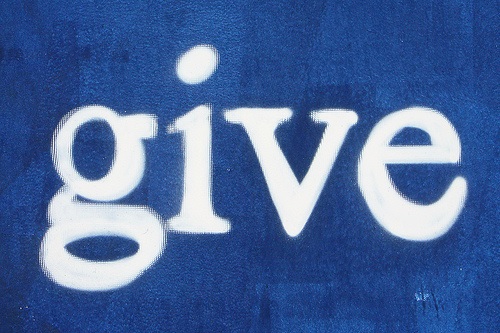
March 27, 2015; Daily Herald (Chicago, IL)
“You may tell a tale that takes up residence in someone’s soul, becomes their blood and self and purpose. That tale will move them and drive them and who knows that they might do because of it, because of your words. That is your role, your gift.”
―Erin Morgenstern, The Night Circus
Sign up for our free newsletters
Subscribe to NPQ's newsletters to have our top stories delivered directly to your inbox.
By signing up, you agree to our privacy policy and terms of use, and to receive messages from NPQ and our partners.
Three years ago, former accountant Marion Ruthig created an organization that focused on increasing community involvement in the public sector through the art of storytelling over that of facts and figures. Her nonprofit, I Support Community, focuses on linking potential donors and volunteers to nonprofits based on the unique telling of each organization’s story. Through a series of videos, I Support Community highlights the meaningful work organizations do in the hope that interested individuals will be inspired to join in the organization’s narrative.
The stories seen in I Support Community’s online videos are likely having a positive impact for the nonprofit recipients—an impact that reaches a segment of the community unmoved by annual report statistics and end of year tax breaks. As explained in an article by Michael Sanders and Francesca Tamma from the Guardian:
“Many people are…aware that they should donate to the causes that have the highest impact, but facts and figures are less attractive than narratives. In a series of experiments, it was found that people are much more responsive to charitable pleas that feature a single, identifiable beneficiary, than they are to statistical information about the scale of the problem being faced. Further work also discovered that advertising which emphasizes the proven effectiveness of the charity does not increase giving. Other evidence suggests that the effect of this information can actually be the opposite. In short, when it comes to charitable giving, we are often ruled by our hearts and not our heads.”
But for more on what motivates donors, we highly recommend the classic “What do Donors Want?” by Cynthia Gibson and William Dietel. It does an excellent job of summarizing the research relative to this topic. There is plenty of other material on this topic in our pages, like this piece on Millennial giving and this one about what motivates women to give. This research is a treasure trove of information and ideas. Wander around NPQ’s “stacks” for a bit and see what you might find.—Michele Bittner and Ruth McCambridge











